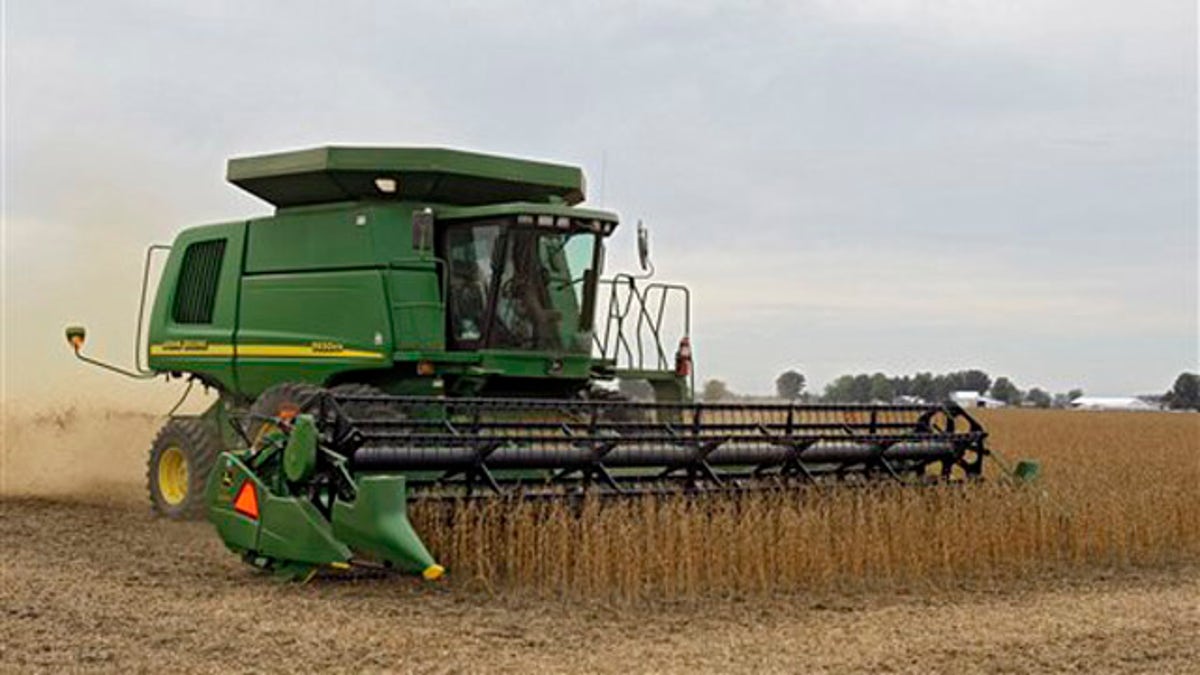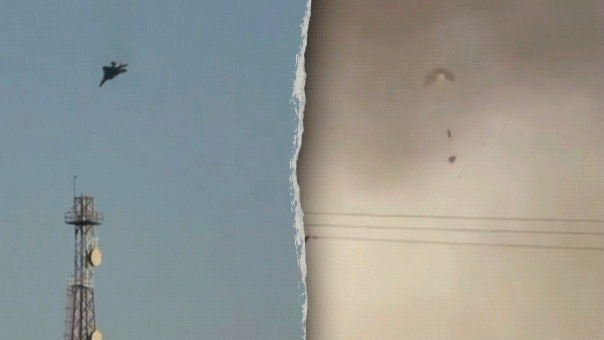
A farmer harvests soybeans in rural Erie County near Monroeville, Ohio, Oct. 10. (AP)
Agriculture industry representatives apparently are not convinced that a proposed fix for a controversial new wireless network will be enough to prevent it from interfering with GPS-guided equipment they depend on for everything from driving tractors to watering plants.
House Small Business Committee Chairman Sam Graves, R-Mo., held a hearing Wednesday where critics of the emerging network sounded off about the potential downsides.
At issue is a proposal by Virginia company LightSquared to build out a next-generation national wireless network that some fear would hinder the effectiveness of high-precision GPS systems -- used by the military, farmers and others.
The company last month announced plans to develop filters and take other steps to mostly eliminate the interference problem, taking out full-page newspaper ads defending the technology.
But Rick Greene, an agriculture industry representative, said at the hearing that the interference could still end up hurting crop yields.
"Farmers should not be expected to accept or live with a disruption in their service as a result of LightSquared's actions," he said in submitted testimony. He said farmers use GPS technology for a range of important jobs, like making sure tractors don't overspread fertilizer.
The company found itself in a political controversy last month when sources said an Air Force general was pressured to change prepared testimony to favor LightSquared, which is backed by Democratic donor Philip Falcone. The general did not end up changing the testimony and went on to tell a House panel that LightSquared signals would interfere with GPS receivers based on testing.
Falcone later denied claims of political interference.
But the hearing Wednesday focused on the real-world concerns about LightSquared's system rather than the political back-and-forth on the general's testimony.
Graves warned that a disruption in GPS would be an "enormous burden" to business.
"Interference of the GPS signal will cost American small businesses billions of dollars to retrofit their GPS devices," he said in a statement. "But this is about more than the cost, it is also about safety. Pilots rely heavily on GPS to maneuver their planes -- so above all, we must ensure that safety is not compromised."
Separately, the American Soybean Association and a dozen other crop producer groups wrote to the Federal Communications Commission on Wednesday urging them to conduct more testing.
"Perhaps LightSquared's most recently proposed remediation efforts will succeed, but they must be proven to succeed through thorough testing before we can support moving forward," they wrote. "Unfortunately, none of the new proposed solutions have undergone meaningful, independent technical testing."
But LightSquared claims its own tests show the filter they've designed produces little or no interference.
"LightSquared has committed to be a good neighbor," LightSquared Vice President Jeffrey Carlisle said.










































